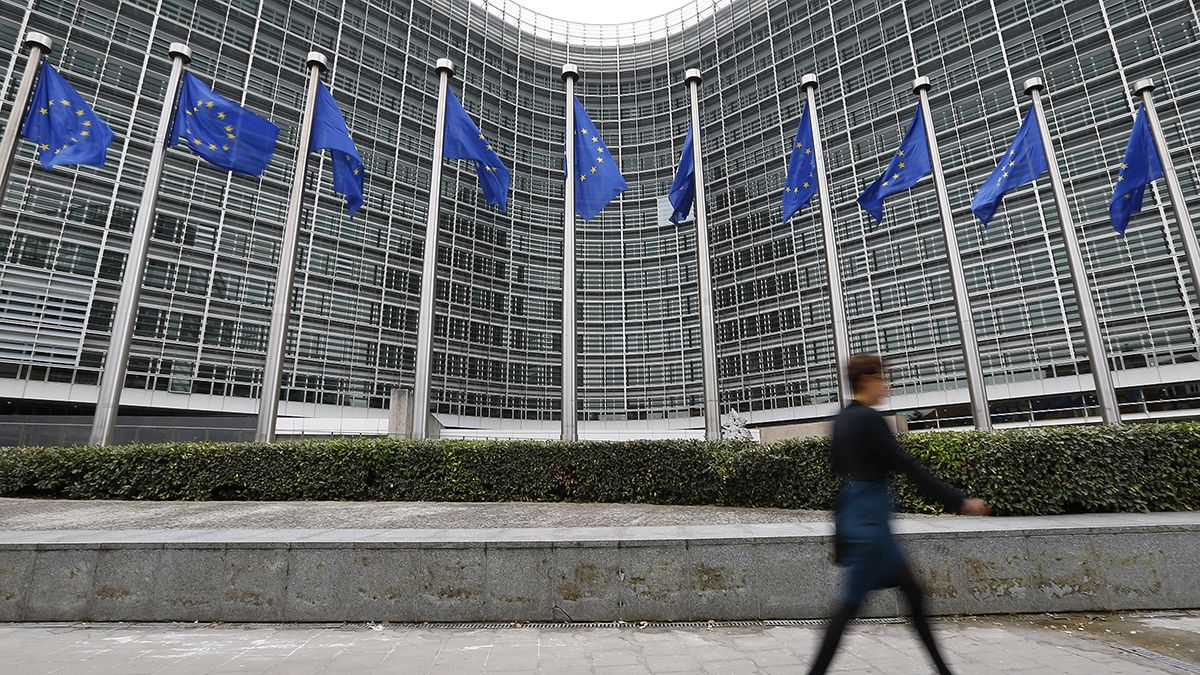Business interests enjoy ‘near unfettered influence’ in Europe, according to a new report by anti-corruption campaigners.
Transparency International (TI) says ‘select voices with more money could dominate political decision-making’ if tougher laws are not introduced.
It claims post-crisis reform of Europe’s financial sector was ‘thwarted and watered down’ largely down to intense lobbying.
The corruption watchdog also says the ‘revolving door’ between public and private sectors is not being controlled. It claims in Portugal 54 percent of all cabinet posts have been filled by bankers since 1974.
TI also raises concerns about conflicts of interest, such as in France where it says parliamentarians are still allowed to lobby and do consulting work.
“Unfair and opaque lobbying practices are one of the key corruption risks currently facing Europe,” said Elena Panfilova, vice-chair of TI. “European countries and EU institutions must adopt robust lobbying regulations that cover the broad range of lobbyists who influence – directly or indirectly – any political decisions, policies or legislation. Otherwise the lack of lobby control threatens to undermine democracy across the region.”
The report also ranks European countries on whether they have lobbying safeguards in place to protect against undue influence.
Cyprus and Hungary came out worst with 14 percent, with Germany, Italy, Spain and Portugal making up the rest of the bottom six.
Slovenia was the best-performer and the only country of 19 assessed to get more than 50 percent.
The European Commission, the executive body charged with running the EU, was the highest-ranking Brussels institution with a 55 percent rating. The European Parliament (MEPs) was given 37 percent and the Council of the EU, made up of the leaders of member states was rated 19 percent.
LOBBYING CONTROVERSIES: THREE EXAMPLES FROM ACROSS THE EUThe TI report has provided specific examples of how lobbying has negatively affected European people.
1. Did lobbying keep discredited drug on the market in France?
The anti-diabetes drug Mediator, which was commonly used as a weight loss pill by many non-diabetic people, was permitted to remain on the French market until 2009, years after it was banned in Italy and Spain, despite evidence suggesting health risks linked to the drug.
The TI report points out that “conservative estimates suggest that the delay in withdrawing the drug resulted in hundreds of deaths as well as thousands of cases of health complications.”
An investigation into why Mediator was allowed to remain on the market cited pressure from the company behind the drug, Servier, which is alleged to have policy makers and health experts to keep it on the market and have it recognised as an anti-diabetes drug.
A trial to determine whether Servier misled patients is expected to begin during 2015.
The company has denied any wrongdoing but has assured compensation for those adversely affected by Mediator.
2. MEP takes cash to push for banking laws
Undercover journalists posing as lobbyists recorded Austrian MEP Ernst Strasser accepting 100,000 euros-a-year to push forward legal changes to EU banking regulation. He stepped down and in 2014 was setenced to three years in prison by the Austrian Supreme Court.
3. Lithuania’s ‘lobbying loophone’
Lithuania has lobbying legislation in place, however there are many gaps and loopholes, claims TI.
It cites the case of where a letter was sent to Lithuanian MPs by leader figures of three major gas companies, urging them not to support draft amendments to a natural gas law.
A small group of parliamentarians, according to TI, complained, worried this lobbying was against the law.
But the complaint was rejected, due to a lobbying law loophole, say TI. The law defines lobbying as an act on someone else’s behalf, which excludes cases where a company representative tries to influence policy or legislation.
